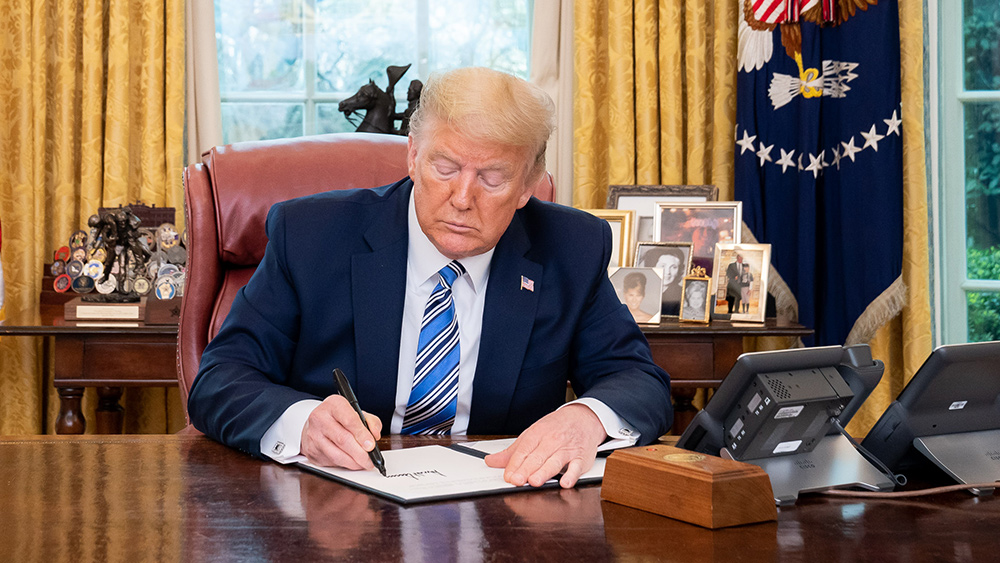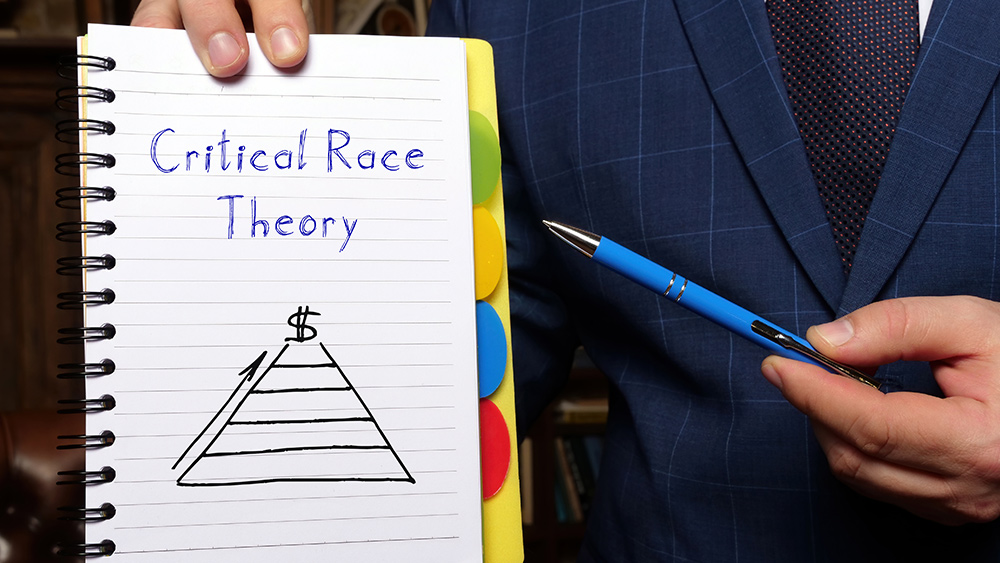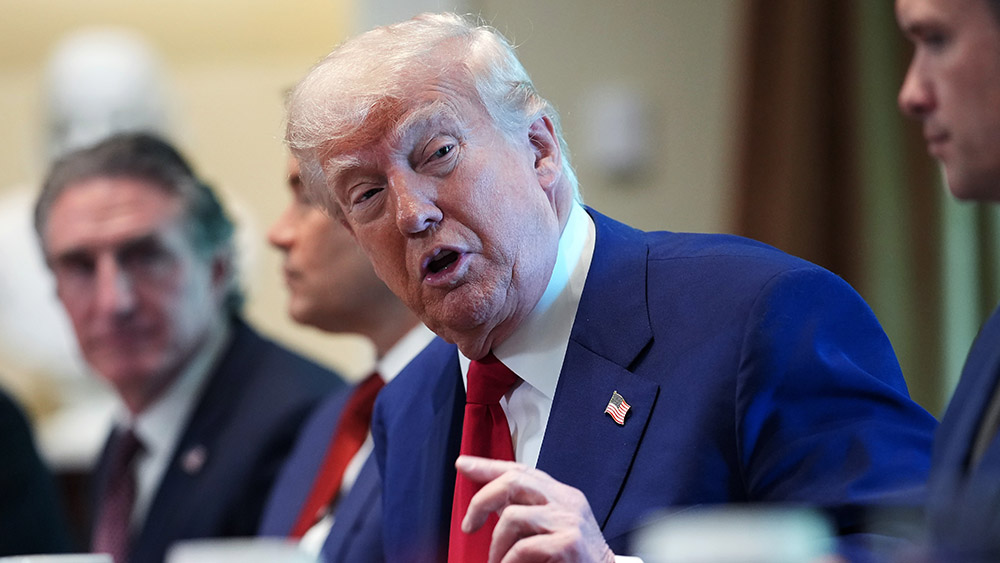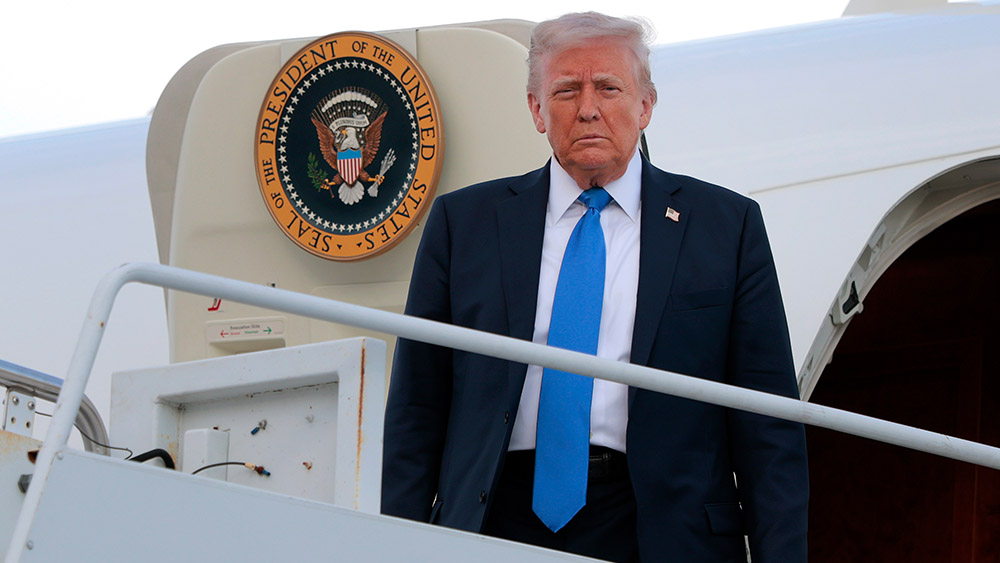“Unaccountable” exposes the shadowy web of elite corruption undermining democracy
07/17/2025 / By Belle Carter

- Janine R. Wedel’s book, “Unaccountable,” exposes the sophisticated and systemic unaccountability that is reshaping the world, distinct from traditional corruption like bribery and embezzlement and operates within legal boundaries while undermining democratic governance.
- The book focuses on “shadow elites” and “shadow lobbyists,” a pervasive network of influential individuals (including academics, former officials, consultants and think-tankers) who move between roles with conflicting interests, often without oversight or transparency.
- Wedel reveals how organizations like think tanks, once independent, have become tools for powerful interests, shaping public opinion and policy through biased research and events, often with undisclosed funding sources and agendas.
- This new corruption erodes public trust in institutions, leading to disengagement and cynicism. It creates a perception of a rigged system, discouraging participation in democracy and further entrenching elite power.
- Wedel advocates for stronger investigative journalism, professional codes and oversight to combat this corruption. She emphasizes the need for a cultural shift towards greater vigilance, skepticism and engagement, urging citizens to demand accountability and hold leaders to higher standards.
In her groundbreaking book, “Unaccountable: How Elite Power Brokers Corrupt Our Finances, Freedom, and Security,” award-winning anthropologist Janine R. Wedel pulls back the curtain on a new and insidious form of corruption that is quietly reshaping the world. This is not the corruption of old, marked by blatant bribery and embezzlement, but a more sophisticated and systemic unaccountability that has permeated the highest levels of society, often operating within the bounds of the law yet corroding the very foundations of democratic governance.
At the heart of Wedel’s investigation are the “shadow elites” and “shadow lobbyists,” a network of influential individuals who operate with little to no oversight. These are not just a few bad apples; they are part of a systemic reshaping of power dynamics over the past few decades. Comprising academics, former government officials, consultants and think-tankers, these players glide seamlessly between roles, often with conflicting interests and agendas.
Consider the case of former U.S. officials who transition directly from public service to lucrative advisory roles with foreign governments or corporations. These individuals leverage their prestige and connections to advocate for agendas that may not align with the public interest. Because they do not register as lobbyists, they are not required to disclose their activities or potential conflicts of interest, effectively operating in a legal grey area that undermines transparency.
Wedel further reveals how organizations, once seen as pillars of independent research and advocacy, have become vehicles for this new corruption. Think tanks, for instance, often present themselves as bastions of impartial analysis. However, many have morphed into mouthpieces for powerful interests, producing reports and hosting events that subtly shape public opinion and policy. The lack of transparency regarding their funding sources and the agendas of their sponsors raises serious questions about their credibility and independence.
Even grassroots organizations, traditionally seen as the voice of the people, are not immune to this trend. Wedel exposes how some of these groups are actually orchestrated from the top by wealthy donors or corporations. Using social media and other digital tools, they create the illusion of widespread support, making it difficult for the public to distinguish genuine advocacy from manufactured consensus.
The implications of this new corruption are profound and far-reaching. Wedel argues that it erodes public trust in institutions, leading to disengagement and cynicism. When people feel that the system is rigged against them, they become less likely to participate in the democratic process, further entrenching the power of the elites.
The consequences are not just theoretical. Wedel provides numerous examples of how this unaccountability has played out in the real world. The 2008 financial crisis, for instance, was exacerbated by opaque financial instruments and lax regulation, resulting in a global economic meltdown. Similarly, the influence of pharmaceutical companies on medical research and practice has led to skewed priorities and compromised patient care.
So, what can be done to combat this new form of corruption? Wedel offers several insights into how we can begin to reclaim accountability and restore trust in our public institutions. She calls for a reinvigoration of investigative journalism, which has been significantly weakened in the digital age. Stronger codes of professional conduct and more robust oversight mechanisms are also essential to ensure that those in power are held accountable.
However, Wedel emphasizes that the solution goes beyond technical fixes. It requires a cultural shift. We must demand more from our leaders and institutions, be more vigilant, more skeptical and more engaged. Accountability is not just a technical issue; it is a moral one. It is about holding those in power to a higher standard and ensuring that they act in the public interest.
“Unaccountable” is a powerful and timely book that challenges us to rethink our assumptions about corruption and accountability. It is a call to action for all of us to become more informed, more discerning, and more active participants in our democracy. As Wedel reminds us, the future of our freedoms and our security depends on it.
Learn more about the book “Unaccountable” by watching the video below.
This video is from the BrightLearn channel on Brighteon.com.
Sources include:
Submit a correction >>
Tagged Under:
biased, big government, conspiracy, corruption, deception, democracy, elite, evil, finance, freedom, insanity, Janine R. Wedel, politics, rigged, shadow lobbyists, truth, Twisted, Tyranny, unaccountable
This article may contain statements that reflect the opinion of the author
RECENT NEWS & ARTICLES
COPYRIGHT © 2017 BIG GOVERNMENT NEWS





















